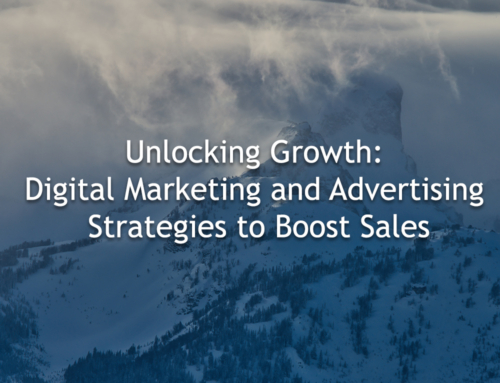Digital marketing is a dynamic field, and the effectiveness of strategies can vary based on the industry, target audience, and other factors. Local vs national markets, service vs. product offerings, sales channels, pricing, capital allotment, website capiabilities and so on. However, here are some core concepts that every business can benefit from, whether they have a major team executing these on a daily basis, or are just delving into the possibilities of digital marketing strategies. At its core, digital marketing is used to share information, communicate, and leverage human action into a final goal, such as a sale, a new blog reader, or a visit to your office. All of these strategies below focus on building and can range in timeline from 1 day to ongoing for the lifetime of your business. If you’re interested in learning more, please don’t hesitate to contact us here.
- Content Marketing:
- Creating and distributing valuable, relevant content to attract and engage a target audience. This includes blog posts, articles, videos, and other forms of content.
- Search Engine Optimization (SEO):
- Optimizing your website and content to rank higher on search engine results pages (SERPs). This involves keyword research, on-page optimization, and building quality backlinks.
- Social Media Marketing:
- Utilizing social media platforms to build brand awareness, engage with your audience, and drive traffic to your website. Each platform requires a tailored strategy based on its audience and features.
- Email Marketing:
- Building and maintaining a list of subscribers and sending targeted, personalized emails to nurture leads, promote products, and build customer loyalty.
- Pay-Per-Click (PPC) Advertising:
- Running targeted ads on search engines and social media platforms to incentive a lead, sale, or brand awareness. Google, Facebook(Meta) Ads, Tik Tok, Linkedin and YouTube are popular platforms for PPC advertising.
- Influencer Marketing:
- Collaborating with influencers in your industry to leverage their credibility and reach. Influencers can help promote your products or services to their engaged audience.
- Video Marketing:
- Creating and sharing videos to showcase your products, provide tutorials, or share behind-the-scenes content. Video content is highly engaging and can be shared across various platforms.
- Mobile Marketing:
- Optimizing your digital marketing strategies for mobile users. This includes responsive website design, mobile apps, and targeted mobile advertising.
- Chatbots and AI-driven Marketing:
- Implementing chatbots to engage with website visitors, answer queries, and guide users through the customer journey. AI can also be used for personalized marketing strategies based on user behavior and preferences.
- Web Analytics and Data-driven Decision Making:
- Utilizing tools like Google Analytics and HotJar to track website and campaign performance. Analyzing data helps in understanding user behavior, improving strategies, and making informed marketing decisions.
Remembering that the effectiveness of these strategies can evolve over time, and it’s crucial to adapt to changes in technology, consumer behavior, and industry trends. Additionally, emerging technologies and platforms may influence the landscape of digital marketing and advertising as the industry evolves. We recommend to stay updated on the latest trends and be willing to adjust your strategies accordingly to the market, time of year, and your current product or service offerings.



